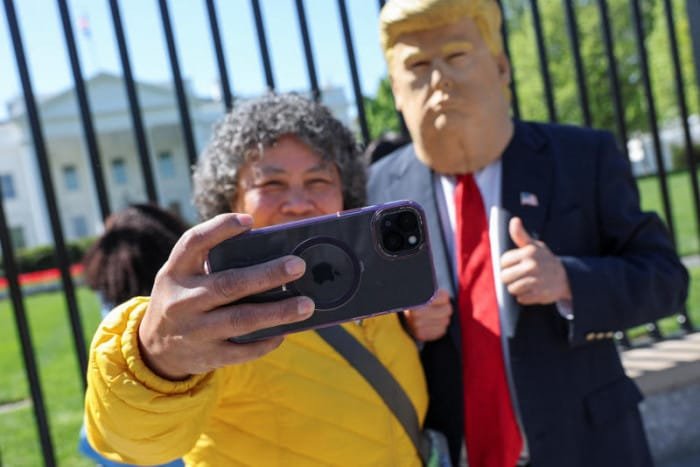Unveiling the Untold: How Former Secret Service Operatives Could Ascend to Key Judicial Roles

Unveiling the Untold: How Former Secret Service Operatives Could Ascend to Key Judicial Roles
The fascinating intersection between national security and the judicial system has often been a topic of interest, but rarely has it been explored through the lens of those who have served in one of the most elite protective agencies in the United States: the Secret Service. In this comprehensive post, we delve into the compelling idea that former Secret Service operatives have the unique skills and experiences that could prepare them for critical roles within the judicial system.
The Secret Service Experience
Former Secret Service agents bring a wealth of experience that can significantly benefit the judicial field. Their backgrounds are characterized by:
- High-Pressure Decision Making: Trained to make split-second decisions in high-stakes environments, these operatives possess the critical thinking skills needed in the courtroom.
- Expertise in Investigation and Intelligence: With extensive training in criminal investigations, fraud detection, and threat assessment, their investigative acumen could lend itself to judicial roles that require a keen understanding of the law and justice system.
- Crisis Management Skills: Navigating complex crises is part of their daily routine, making former agents well-equipped to handle the pressures of judicial proceedings.
This unique blend of skills weaves a narrative that underscores how their transition into judicial roles could enrich the legal landscape.
Bridging Security and Justice
The legal system is, after all, a pillar of democracy, often challenged by the complexities of national security. Turning the spotlight on former Secret Service agents:
- Understanding of Legal Nuances: Their training facilitates a robust understanding of laws related to protection, security, and national interests, making them apt candidates for roles such as legal advisors or judges.
- Cultural Competency: Often required to engage with diverse groups, their ability to navigate various cultural contexts enhances their effectiveness in judicial scenarios.
The Value Proposition
Utilizing the skills of former Secret Service operatives in the judiciary could lead to numerous benefits:
- Enhanced Security Protocols: Their unique background allows for better evaluation and implementation of security measures within the judicial framework.
- Innovative Judicial Practices: They can contribute fresh insights into courtroom management and legal processes by introducing methods grounded in their protective experience.
- Strengthened Public Trust: The presence of ex-agents could foster greater public confidence in the judicial system, particularly regarding issues of national security and justice.
Case Studies and Real-World Applications
The idea that a professional transition is not only beneficial but feasible is supported by several case studies. For instance, consider ex-Secret Service agent Brian O’Connor, who transitioned from protecting presidents to serving as a legal consultant for high-profile cases involving human trafficking. His firsthand experience with criminal behavior proved invaluable in understanding the nexus between security and law.
Another example includes former operative Anna D’Arcy. After years of service, she moved into a role within a state judicial board, where her insights directly contributed to reforming security protocols in juvenile justice systems.
Perspectives from Experts
To further unpack this idea, insights from legal professionals, criminologists, and former operatives themselves shine a light on the potential impact. Notably, retired Judge Richard Smith stated, “The analytical skills and unique perspective that former Secret Service agents bring to the judiciary can innovate the way we approach legal challenges.”
Another perspective from criminologist Dr. Lisa Turner emphasizes, “Judicial roles filled by individuals experienced in crisis situations can create a ripple effect in how courts handle sensitive cases, ultimately impacting societal perceptions of justice.”
Unique Challenges and Concerns
While the potential benefits are substantial, the prospect of integrating former Secret Service operatives into judicial roles isn’t without its challenges.
- Public Perception and Bias: There may be preconceived notions about the impartiality of someone with a background in protective services.
- Transitioning Roles: The shift from security to judiciary comes with a learning curve, particularly in understanding legal intricacies and courtroom decorum.
Addressing these concerns is paramount for the successful implementation of these roles.
Looking Ahead: A New Paradigm
The time is ripe to rethink conventional pathways into the judiciary. The integration of former Secret Service operatives could signify a step towards a more fortified, transparent, and agile judicial system.
- Legislative Frameworks: Crafting policies that allow these professionals to bridge their former roles with judicial responsibilities will be pivotal.
- Training Programs: Implementing robust training programs that prepare these agents for judicial functions can facilitate a smoother transition and ensure they adhere to the ethical standards of the legal profession.
Conclusion
The untapped potential of integrating former Secret Service operatives into the judicial system presents a compelling narrative. These unique professionals offer a confluence of expertise that can address contemporary judicial challenges. Their remarkable backgrounds in security, crisis management, and legal investigations position them as valuable assets.
By embracing this notion, we not only honor the versatile skills of our nation’s protectors but also strengthen the very foundations of our judicial system.
For more insightful articles related to national security and the judiciary, explore our catalogue of news articles on BizTechLive.
Additional Resources
For a deeper understanding of the implications and benefits of integrating former Secret Service members into judicial roles, consider exploring these external resources:
- National Criminal Justice Reference Service
- American Bar Association – Guidelines for Judicial Appointments
By engaging the wisdom embedded in this narrative, we pave the way for a more informed discourse on the intersection of national security and the judiciary, shaping our collective future towards a safer society grounded in equitable justice.






